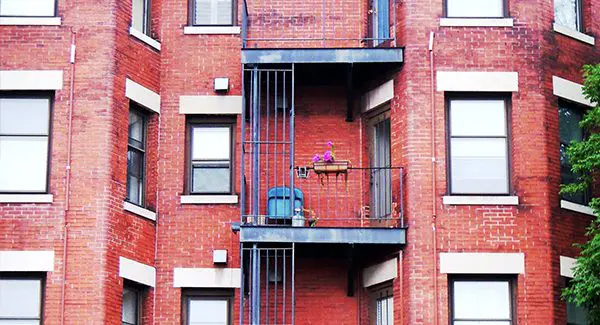- Landlord & Tenant Law, Litigation
- Illinois
Many landlord/tenant relationships operate without difficulty. However, in some instances, it may become necessary for a landlord to terminate a lease and take over possession of the property from the tenant. Landlords may evict tenants for various reasons including but not limited to violation of lease terms, non-payment of rent or holdover tenancy.
When a tenant fails to pay the monthly rent pursuant to the terms of the lease, it is essential that the landlord begin the process with service of a Notice to Terminate. The demand for payment should be served upon the tenant, or someone of the age of thirteen (13) years or older, residing in, or in charge of the premises, or in the case no one is in actual possession of the premises, then by posting the Notice on the premises. The demand for payment must be addressed to the lease holder, include the description of the premises being sought, the amount owed in rents, and must be signed by the person claiming possession of the premises, his agent or attorney.
If the tenant fails to tender the amount of the demand prior to expiration of the Notice, then the landlord may file an action in Forcible Entry and Detainer. The main objective in an eviction action is to obtain an Order for Possession from the court. The Order for Possession grants the landlord the right to retake possession of rental property from the tenant. Once the stay of eviction has expired, the Sheriff of Cook County may enforce the Order and the physical eviction takes place.
Eviction actions are strictly governed by the Forcible Entry and Detainer Act (735 ILCS 5/9-101). Courts expect strict compliance with the statute. After the expiration of the Notice of Termination, the landlord may file a Complaint with the clerk of the circuit court to begin the eviction process. The complaint should name each tenant that appears on the lease that either signed the lease or is named as an occupant and is over the age of eighteen (18). Also, unknown occupants must be named on the original complaint and summons. If unknown occupants are not named in the initial summons and complaint there may be a delay in the eviction process later down the road. Specifically, when a judgment for possession in favor of the plaintiff is entered but the order does not include unknown occupants, when the sheriff executes the eviction, the eviction may be delayed up to seven (7) days to allow unknown occupants to file a motion upon the court to stay the eviction and state a legal claim to possession of the premises.
Once the complaint has been filed, the clerk of the circuit court will issue summons to be served on the defendant. In Cook County, service of the summons must be placed with the Sheriff of Cook County first before using a licensed process server. If the sheriff is unable to serve the summons on the tenant/defendant, the landlord/plaintiff may request, by motion of the court, service by a court appointed special process server. Once the judge grants the motion, service may be attempted by the special process server. At this point, the summons is called an Alias Summons, signifying an additional attempt of service.
In some cases, the process server is unable serve the alias summons on the tenant/defendant. Upon proof to the court that attempts have been made, but service has not been obtained, the court may allow constructive service upon the tenant/defendant. This manner of service is known as Notice by Posting or Publication (735 ILCS 5/2-206 and 735 ILCS 5/9-107). The notice must provide for at least ten (10) days of publication. The Sheriff of Cook County will post the notice in three public places and send a copy of the Notice with the pending case information to the tenant/defendant. If the tenant/defendant does not appear in court, the court may rule only on the portion of the complaint which seeks judgment for possession. If the tenant/defendant appears, a judgment for rent can be entered against the defendant if the defendant submits to jurisdiction of the court.
Once the complaint has been filed, the process can take anywhere from two to eight weeks for the matter to have an initial hearing. Assuming the case is uncontested and all documentation and notices have been prepared and presented correctly, a judge will usually enter an Order for Possession and then stay the eviction usually seven (7) to fourteen (14) days. However, if the tenant/defendant contests the matter, the procedure can be delayed. All defendants are allowed a week continuance to obtain counsel and answer or otherwise plead. Additionally, a defendant has the right to file a jury demand. If the matter is transferred to the jury calendar in courtroom 1404, the process can be delayed for several weeks to months.
Once the stay date for the eviction expires, the order can be placed with the sheriff of Cook County for eviction. The entire process can take at a minimum of about two and a half to three months and can sometimes take much longer. The length of this process can sometimes be the source of the landlord’s frustration, however, knowing what to expect with the eviction process can sometimes ease a landlord’s anxiety and expectations.
If the tenant/defendant fails to vacate the premises upon the expiration of the order for possession, the order can be placed with the Sheriff of Cook County to effectuate the eviction. Current evictions are taking anywhere from 3 to 4 weeks for the actual eviction to take place. When the order has been placed, a deputy from the sheriff’s office will contact the landlord or the landlord’s agent to give the date and a block of time for the eviction. Due to office safety, the landlord may not inform the tenant of the date and time that the sheriff will be coming to effectuate the eviction. If the tenant has been informed, when the sheriff arrives to do the eviction, the sheriff will leave the premises and the actual eviction will be scheduled for another time.
It is important to inform the Sheriff whether there are elderly persons residing in the unit, children, persons with disabilities and in some instances, animals. If the sheriff knows what to expect during the actual eviction, then the sheriff will be better prepared and have the proper agencies there to assist with the eviction. The landlord should have a locksmith there to change the locks immediately once the eviction has taken place. Once the sheriff has removed any occupants from the premises, they will make a general sweep of the unit. After the unit is deemed secure, the landlord will be given the authority to enter and change the locks. The Sheriff of Cook County no longer removes items from the premises. If there are items left within the unit, the landlord should make a reasonable attempt with the tenant to remove the items at a designated time. Please note, the tenant may not allow to reenter the unit once they have been evicted unless it is supervised for the removal of their belongings. If a tenant refuses to leave the unit at a later date, the police must be called at that time to report the trespass.
There are many scenarios that make each eviction unique. It is best to speak with your attorney so that you will know what to expect when you are evicting.
Since 1983, KSN has been a legal resource for condominium, homeowner, and townhome associations. Additionally, we represent clients in real estate transactions, collections, landlord/tenant issues, and property tax appeals. We represent thousands of clients and community associations throughout the US with offices in several states including Florida, Illinois, Indiana, and Wisconsin.
If our law firm can be of assistance, please call 855-537-0500 or visit www.ksnlaw.com.
This article is made available by the lawyer or law firm publisher for educational purposes only as well as to give you general information and a general understanding of the law, not to provide specific legal advice. By reading this article you understand that there is no attorney client relationship between you and the article author. This article should not be used as a substitute for competent legal advice from a licensed professional attorney in your state. © 2023 Kovitz Shifrin Nesbit, A Professional Corporation.



